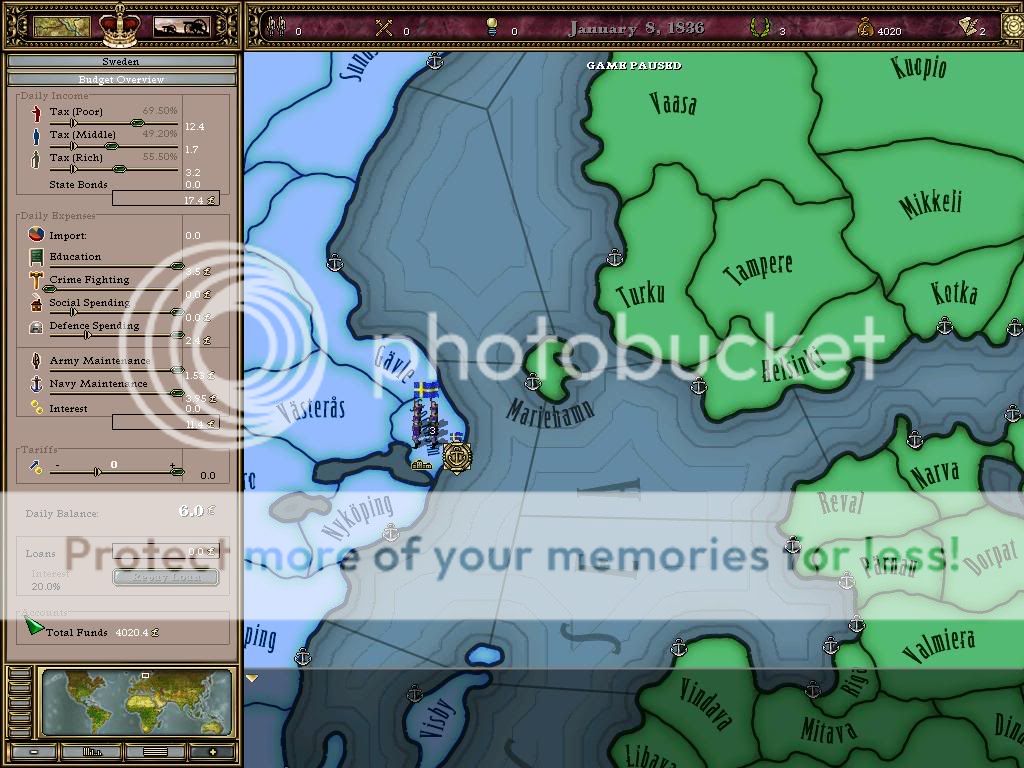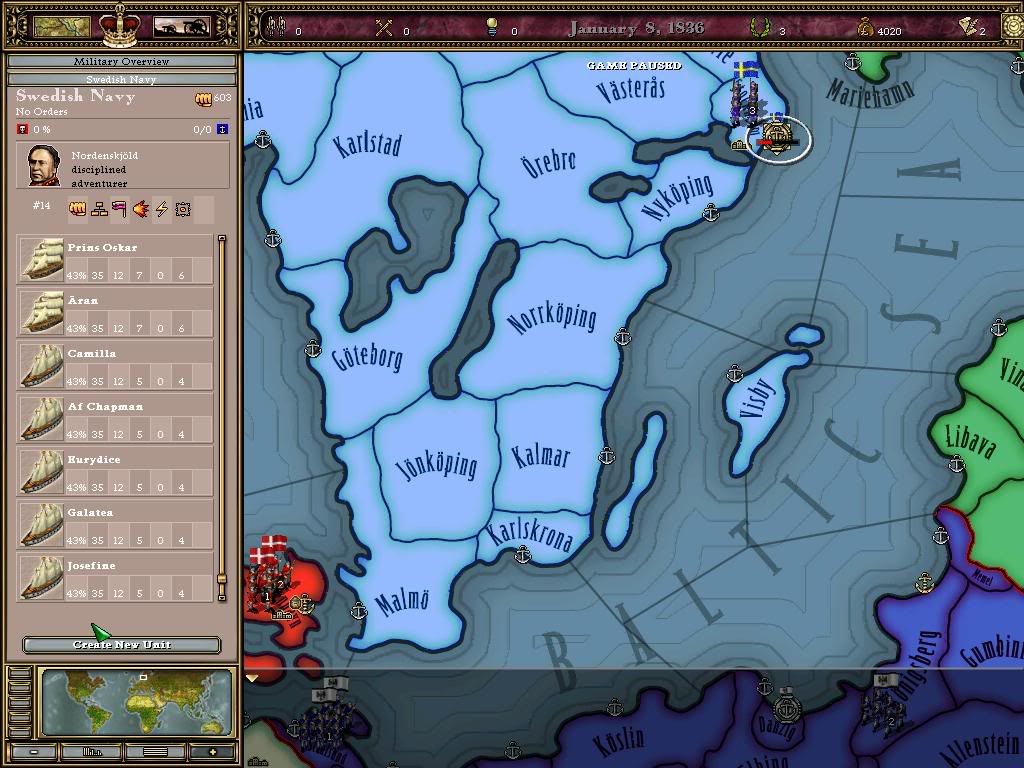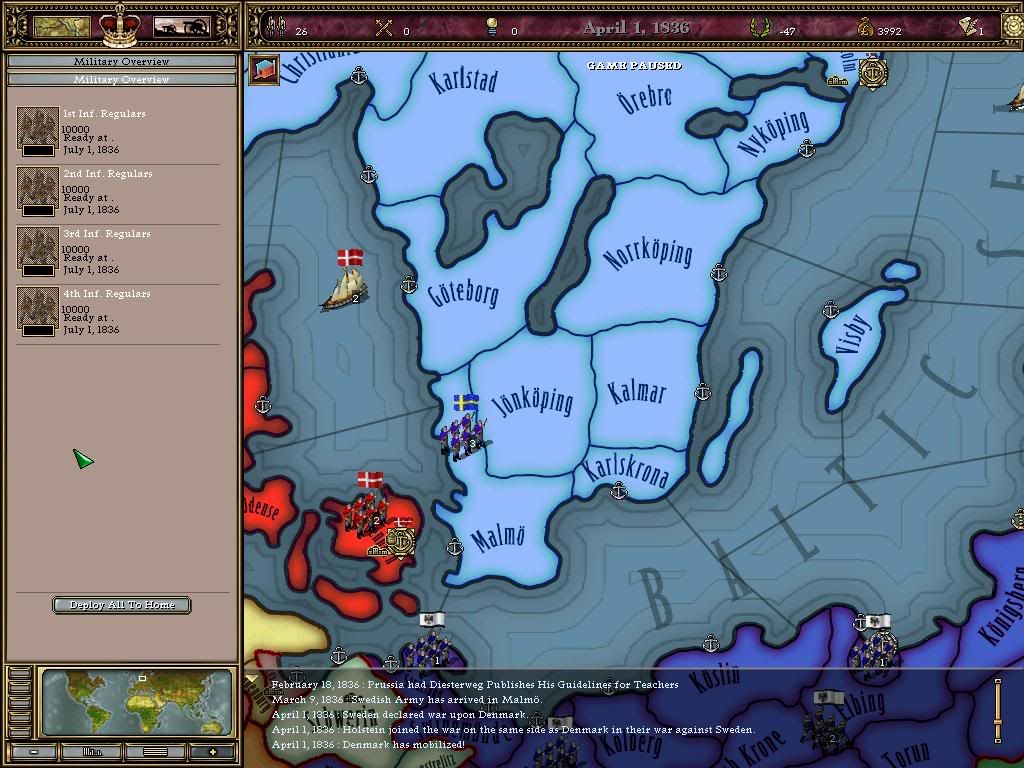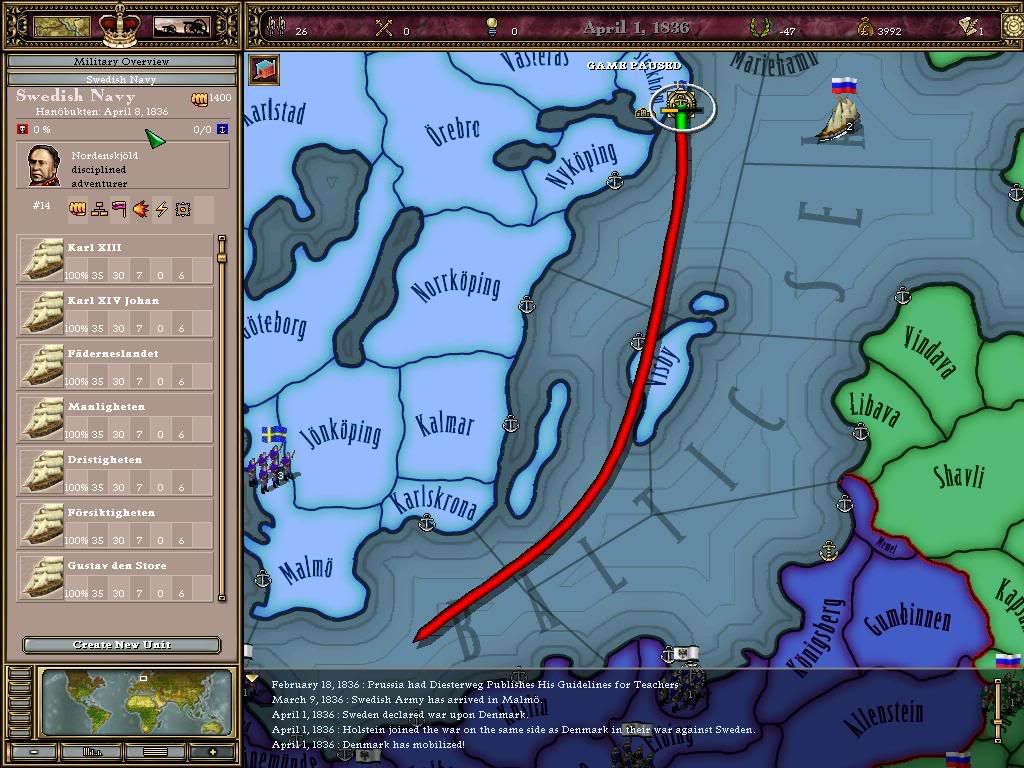First month, the Army and Navy.
Within the first month, the Swedish economy boosted to a surplus, allowing the riskdag to bring naval maintenance to full spending. It seems the Navy was safe. However, in order to keep the economy running, the Admirality scuttled the 3 transports, as they would not be needed anytime soon.
The new state of the economy.
The Swedish Army consisted of 2 infantry divisions, one housing the elite Svea Livgarde, and a dragoon division. The Army was under the command of General Dahlberg, a career soldier with a history of service in the Livgardet, with experience in the Napoleonic Wars.
The Navy had recieved a neglect in funding for years, but with the new economic policy, the Riskdag allowed maximum funding. The main, and only, fleet is based in Stockholm harbor. Composed of 8 Men-o-War and 5 frigates, the fleet is headed by Admiral Nordenskjold, another career sailor who unfortunately has not participated in a major fleet action.
The first month saw the Belgian people seceding from the Netherlands. Within a couple days of fighting, Belgium became autonomous, but a Dutch satellite. The following London Treaty made this legal, with Britain and France signing it, and Prussia and Austria choosing not to.
King Karl XIV announced a sudden change the political system. He declared, upon the death of the King, be it in battle or at home, the Parliament will hold an election to determine the new ruling party with the new ruling King. This caused dissatisfaction from the upper classes, who viewed this act as a challenge to their power. The King also created the two new offices of Prime Minister and Speaker of the Riksdag.
The Prime Minister, who was appointed by and only answered to the King, was in charge of day to day affairs and represented the His Majesty. The first man appointed to this position was Sven Frieborg, a retired general and outspoken Russophobe. Sven was a member of the Konservativa, and immediately began consolidating his position, and reforming the country. He also was a notorious power hungry demagogue, contesting Party leadership for years. However, his military experience and political realism appealed to Karl XIV. Sven's first act was to extend universal suffrage, an act met with hostility from his own party.
The Speaker was elected by the ruling party. Since the Konservativa controlled the Riksdag, they unanimously elected Karl Jacon, member of a noble house. Jacon, typical of noblemen, spoke elequently and had a hot temper, he is known to have challenged at least 5 politicans to a duel.










 Reply With Quote
Reply With Quote


















Bookmarks